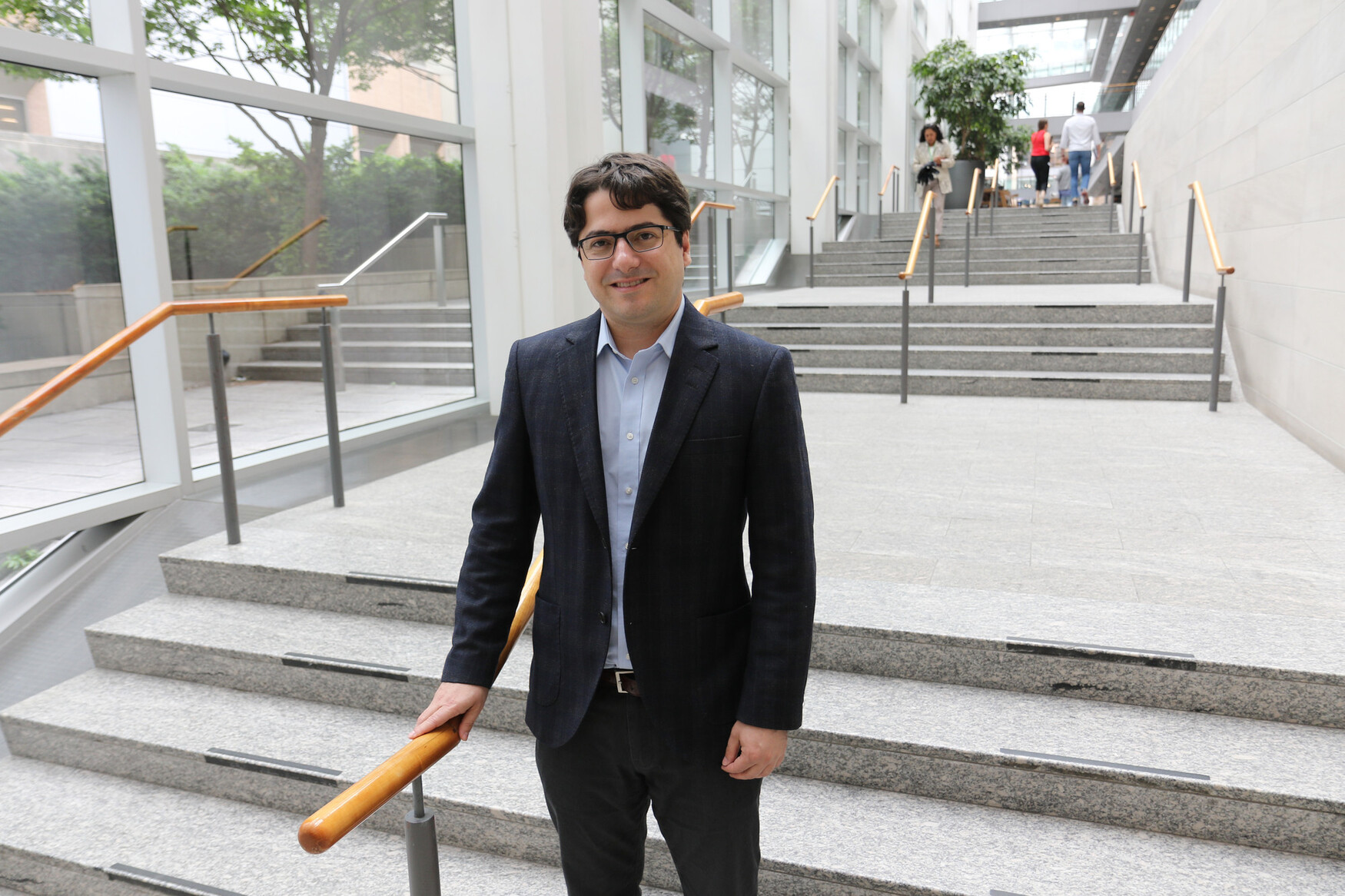Mobile Menu
- Education
- Research
-
Students
- High School Outreach
- Undergraduate & Beyond: Community of Support
- Current Students
- Faculty & Staff
- Alumni
- News & Events
- Giving
- About

The University of Toronto’s Daniel De Carvalho, a senior scientist at the University Health Network, has received the 2025 Peter Gilgan Canada Gairdner Momentum Award.
He is one of eight recipients of the 2025 Gairdner Awards — Canada’s most prestigious awards for biomedical and global health research — announced this morning.
The Peter Gilgan Canada Gairdner Momentum Award recognizes Canadian mid-career researchers who have made exceptional scientific research contributions with continued potential for impact on human health.
De Carvalho, an associate professor of medical biophysics at the U of T’s Temerty Faculty of Medicine, was recognized for his impactful contributions to cancer epigenetics.
His research has transformed the understanding of how epigenetic changes drive cancer and has led to novel approaches for early cancer detection and treatment. By identifying unique DNA methylation signatures in cell-free DNA, he and his team have developed liquid biopsy techniques capable of detecting cancer through a simple blood test.
These innovative methods offer a noninvasive and highly sensitive alternative to traditional diagnostic tools, opening new avenues for early detection and personalized treatment.
"Receiving the Gairdner Momentum Award is an incredible honour and a testament to the collaborative efforts of my team and colleagues," says De Carvalho, who is also an Allan Slaight Scientist at the Princess Margaret Cancer Centre.
"Our goal is to continue advancing cancer detection methods to improve patient outcomes and ultimately save lives."
Beyond his research in early cancer detection, De Carvalho has also made significant contributions to understanding how epigenetic therapies can enhance immune responses against cancer. His studies have revealed that epigenetic drugs can reprogram cancer cells to make them more recognizable by the immune system through a process called viral mimicry, offering promising strategies for combination therapies in immuno-oncology.
His research has also uncovered key insights into the interplay between epigenetics and tumour evolution, shedding light on how cancers develop resistance to therapies. By exploring these mechanisms, he is working toward designing more effective treatment strategies that can anticipate and counteract resistance, ultimately improving long-term outcomes for patients.
His innovative work has not only influenced cancer diagnostics but has also had a profound impact on the broader field of cancer research. Through his leadership and scientific vision, De Carvalho is shaping the future of cancer detection and treatment.
In addition to his scientific achievements, Dr. De Carvalho is deeply committed to mentoring and inspiring the next generation of researchers, supporting students and trainees in advancing their careers in cancer science.
This story was originally published by the University Health Network.

